利用linux清空Windows登陆密码
Windows的用户和密码存放在SAM文件中,通过 chntpw 可以实现清空登陆密码的目的。
步骤如下(该步骤在Windows XP,Windows 7和Windows 10下都能通过测试):
用Linux Live CD或Live USB登陆PC
我这里用了ArchLinux的安装镜像来演示。
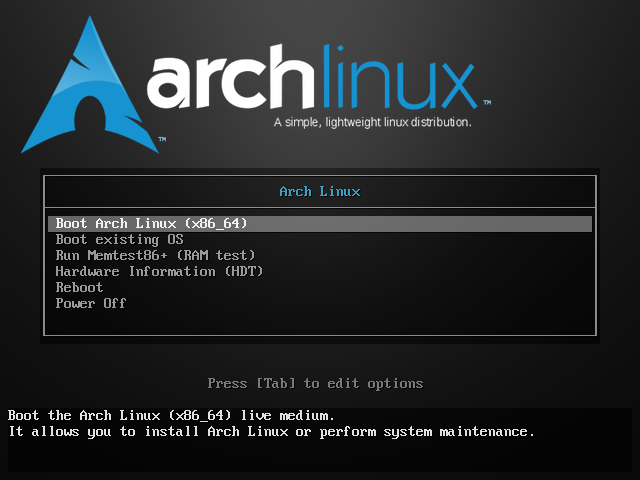
按下回车进入命令行
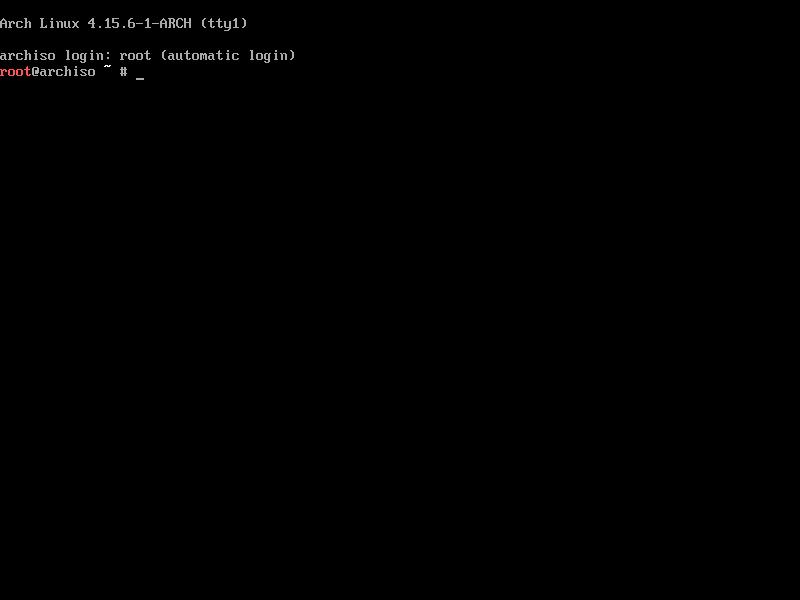
安装
chntpw# 启动dhcpcd获取IP地址 dhcpcd # 安装chntpw pacman -Syy pacman -S chntpw --noconfirm
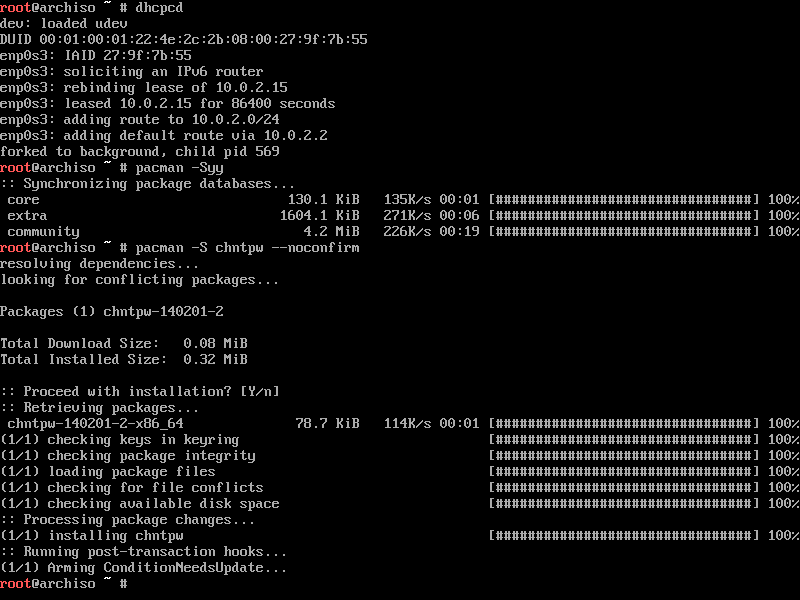
挂载windows所在分区
# 查看windows分区 sfdisk -l # 挂载windows所在分区 mount /dev/sda1 /mnt
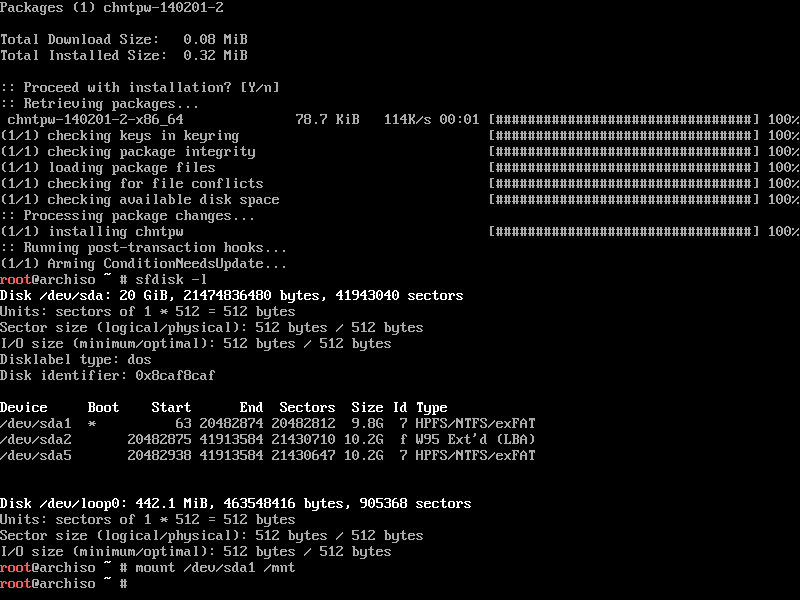
开始破解
进入SAM文件所在目录,SAM文件在
WINDOWS/system32/config/目录下cd /mnt/WINDOWS/system32/config使用
chntpw -l SAM可以查看用户记录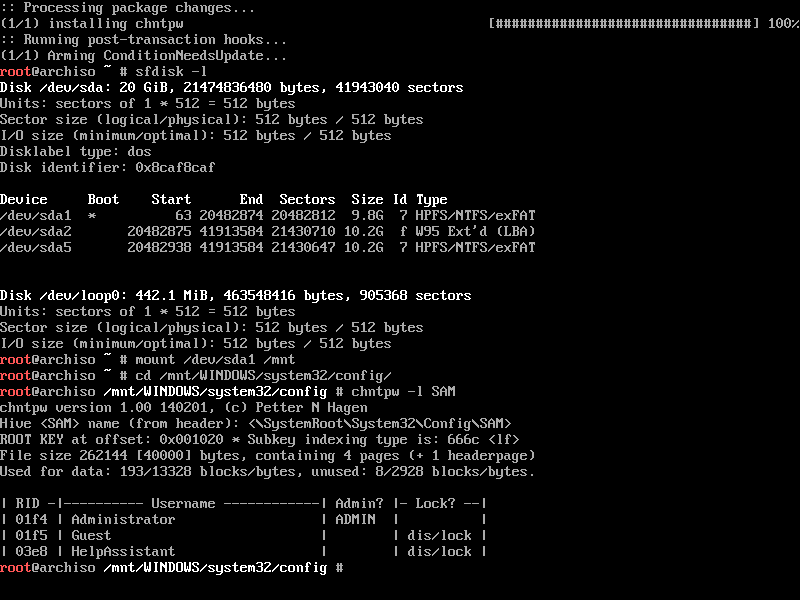
要清空登陆密码,则可以运行命令
chntpw -i SAM
会出现一个菜单:
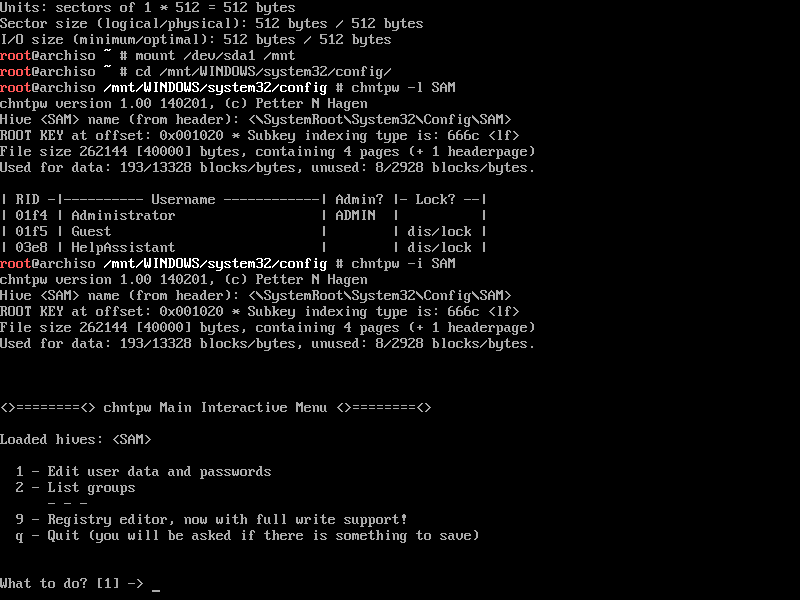
我们选择
1- Edit user data and passwords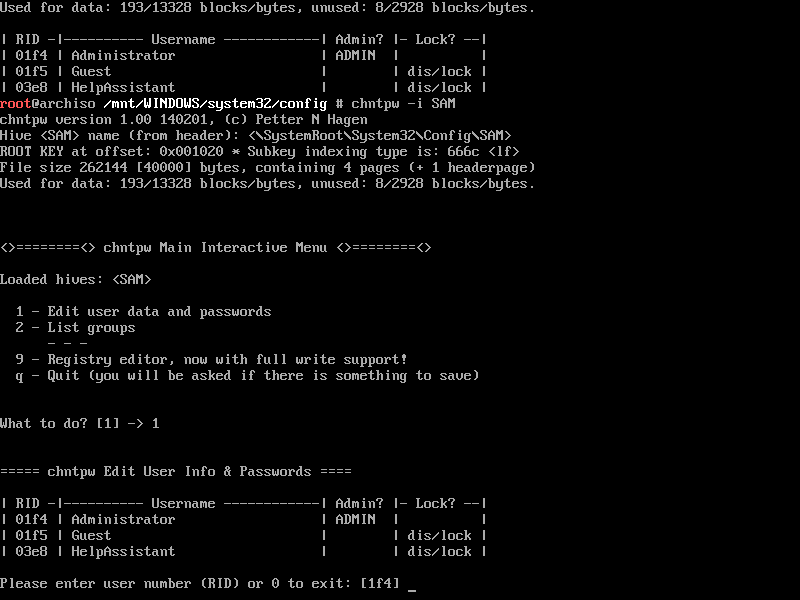
然后输入要清空密码用户前面的RID,比如我这里想清空
Administrator的密码,则输入01f4然后你可以看到一个菜单,通过这个菜单你可以对用户做许多操作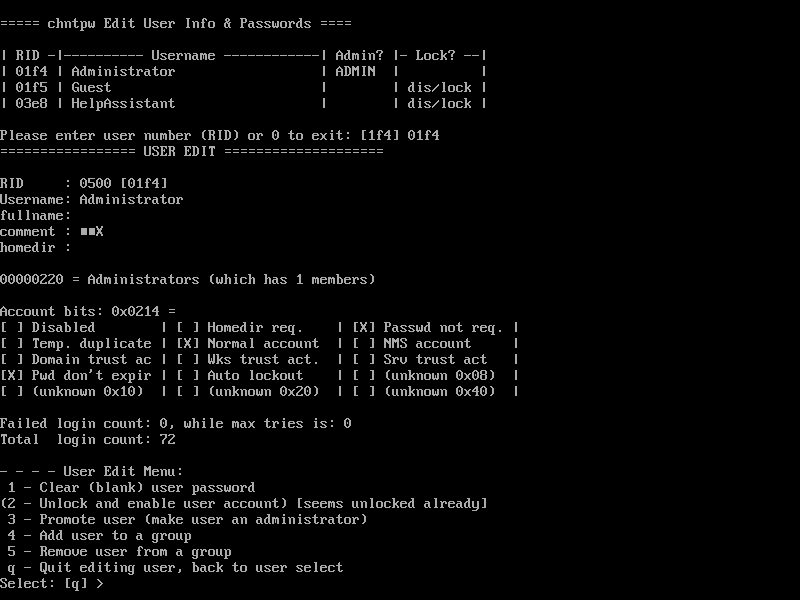
这里我们选择
1 - Cleara (blank) user password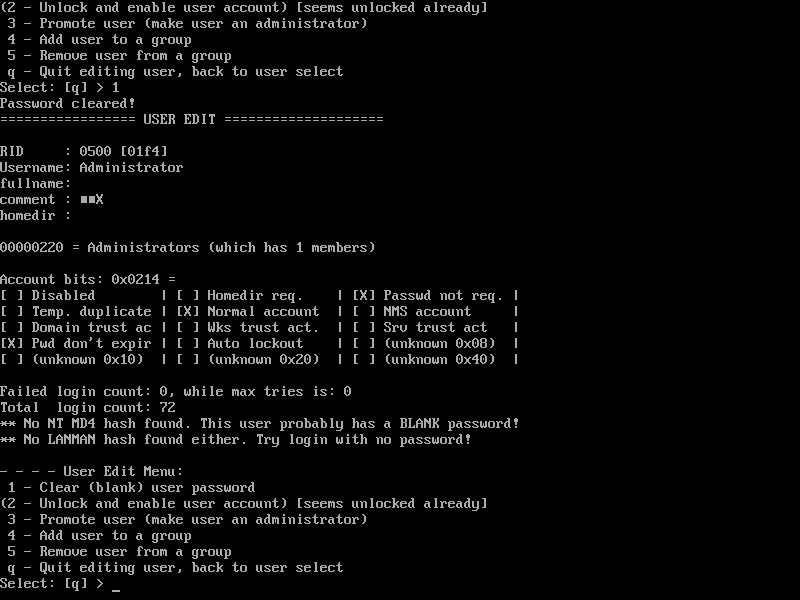
OK,
Administrator的密码就被清空了,我们按q健退出chntpw程序 最后按下y保存对文件的修改: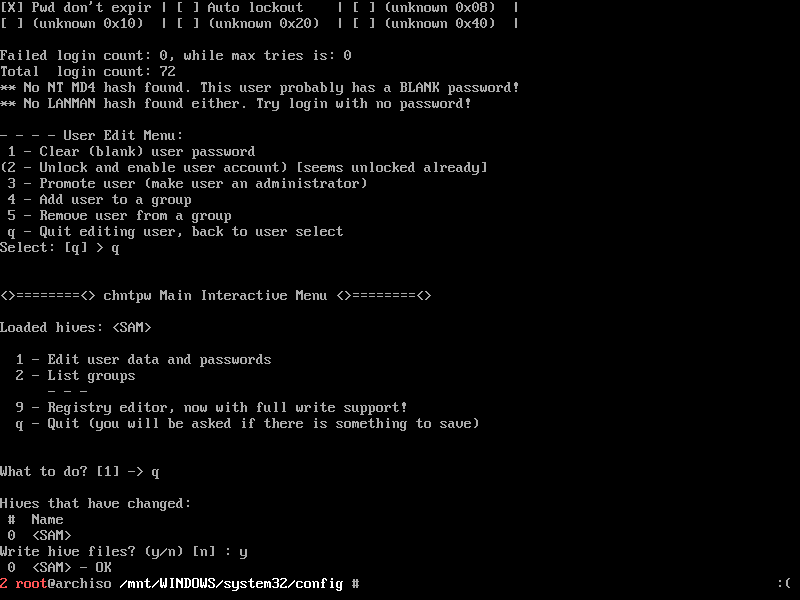
最后重启系统后,再进入windows就会发现密码已经被清空了。
获取 chntpw 的帮助信息 通过执行
chntpw -h就能查看它的其他选项说明:chntpw -h
结果为:
chntpw: change password of a user in a Windows SAM file, or invoke registry editor. Should handle both 32 and 64 bit windows and all version from NT3.x to Win8.1 chntpw [OPTIONS] <samfile> [systemfile] [securityfile] [otherreghive] [...] -h This message -u <user> Username or RID (0x3e9 for example) to interactively edit -l list all users in SAM file and exit -i Interactive Menu system -e Registry editor. Now with full write support! -d Enter buffer debugger instead (hex editor), -v Be a little more verbose (for debuging) -L For scripts, write names of changed files to /tmp/changed -N No allocation mode. Only same length overwrites possible (very safe mode) -E No expand mode, do not expand hive file (safe mode) Usernames can be given as name or RID (in hex with 0x first) See readme file on how to get to the registry files, and what they are. Source/binary freely distributable under GPL v2 license. See README for details. NOTE: This program is somewhat hackish! You are on your own!
